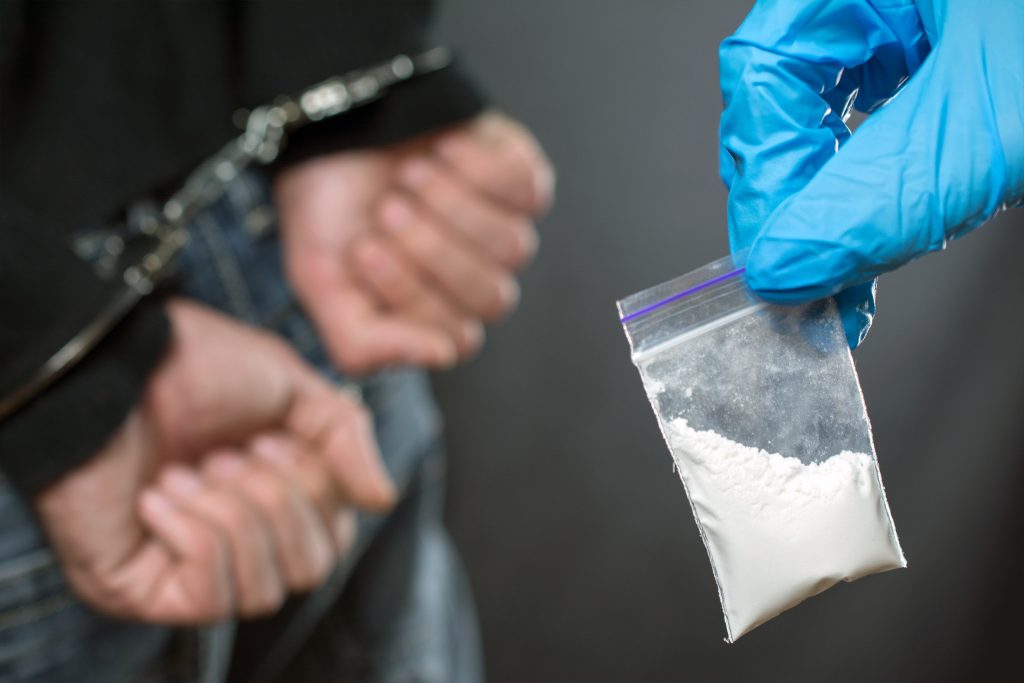This blog talks about how drug possession turns into supply in NSW.
If you are arrested with drugs in your possession, you may be charged with supply of prohibited drugs, even if the narcotics were not intended for that purpose.
The Drug Misuse and Trafficking Act 1985 (NSW) (‘DMTA’) makes it a crime for a person to be found with prohibited drugs in their possession. If that drug exceeds a certain amount, then it is automatically deemed to be in the person’s possession for the purpose of supply. This threshold is known as the “traffickable amount” and varies depending on the type of drug.
A defence to the “deemed” supply charge
In court, if the prosecution prove ‘beyond a reasonable doubt’ that you had no less than the traffickable amount of the drug in your possession, it then falls on you to prove that you did not intend to supply the drugs. This must be proven on the ‘balance of probabilities’ – essentially it was ‘more likely than not’ that you didn’t intend to supply the drugs.
Alternatively, you could give evidence that the drug in your possession was obtained through a legitimate prescription; though this defence is not available for certain types of prohibited substances.
So how exactly do you prove that you did not intend to supply the drugs? Well, this can be done by providing evidence regarding the lack of ‘drug indicia’ found during your arrest. ‘Drug indicia’ are things which would normally indicate that you were involved in selling drugs such as scales, ledgers, multiple mobile phones or large amounts of cash. You could also argue that the drugs were in your possession for personal use. This may be in your best interest as supply charges contain harsher penalties than drug possession offences. However, before making any admissions it is important to obtain independent legal advice from a criminal lawyer in Sydney.
Another option is the “Carey defence” which involves arguing that you had temporary possession of a prohibited drug with the intention of returning it to the owner. However, to rely on this defence there must be evidence capable of proving that the possession of the drugs was “merely momentary or transient”.
What is ‘Possession’ under the Law?
‘Possession’ in the context of drug possession means you intentionally had the substance in your physical custody or control to the exclusion of any other person (except where the charge is ‘joint possession’). An example of ‘custody’ would be to have prohibited drugs in your pockets or bag. ‘Control’ refers to the ability to do something with a prohibited drug such as keeping, consuming, or sharing it. Possession does not necessarily mean ownership.
What is a “Traffickable” Quantity?
The full list of prohibited substances and the amount necessary to meet the threshold of “traffickable quantity” can be found in Schedule 1 of the DMTA. The “traffickable” quantities for some of the more well-known substances are listed below:
- Cannabis (leaf): 300 grams
- Cannabis (oil; THC): 5 grams
- Heroin: 3 grams
- Cocaine: 3 grams
- Fentanyl: 0.0075 grams
- Methylamphetamine: 3 grams
- Ecstacy: 0.75 grams
- Ketamine: 7.5 grams
- GBL: 30 grams
- LSD: 0.003 grams
What is ‘Supply’ under the Law?
The meaning of ‘supply’ under the law goes further than the ordinary meaning of the word. In the context of having drugs in your possession, supply could include:
• Selling and distributing drugs
• Sending, forwarding, or delivering the drugs or receiving them for supply
• Attempting the aforementioned acts
Possession vs Supply – Penalties
As previously mentioned, the penalties for supply charges are generally much harsher than those for possession. Possessing a relatively small amount of a prohibited substance will result in the matter generally being dealt with in the Local Court where the maximum penalty is 2 years imprisonment and/or a fine of $2,200. Even then, it is unlikely that the maximum penalty will apply unless there were significant aggravating factors.
Being charged with supply of a prohibited drug can result in the matter being heard in the District Court where you can face up to 15 years imprisonment and/or fines of up to $220,000.
It is always best to seek proper legal advice before proceeding with any plea or providing any admissions to police. Call us today on 1800 100 529 to book a free consultation with a crimina lawyer.


